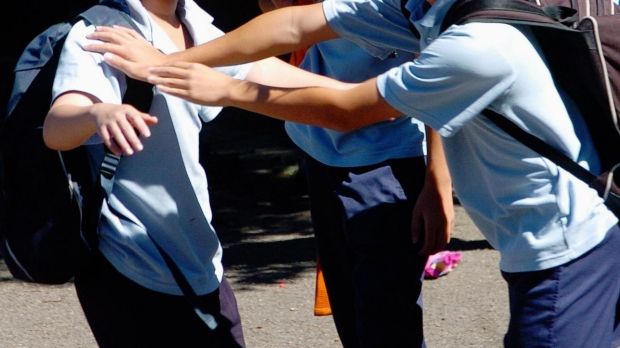EDITORIAL

Bullying is a problem for the entire Australian community. Photo: Janie Barrett
As the long summer break ends and families prepare for the return to school, many children will be excited about their new class, new teacher and the new friends they will make in the year ahead.
But instead of enjoying a year of friendship and learning, up to one in four Australian students will experience some form of bullying.
The Sun-Herald is starting the new school year with a two-part series “Play Nice”, putting the spotlight on the malaise of bullying and calling for a renewed fight against its prevalence.
We begin our investigation by examining the role of parents, who can actually become part of the problem. We uncover alarming incidents of violent behaviour on school grounds across the state.
The good news is there is fresh and encouraging evidence that parents can help children cope with bullying, even though it often falls under the radar in the playground, classroom or on social media.
Repetitive by definition and often hidden from parents and teachers, bullying can have devastating mental health consequences well into adulthood. Even witnesses suffer, feeling guilty that they could not stop it and becoming fearful that it is the norm.
Bullying is a problem for the entire Australian community.
It is disturbing to discover that parents are acting violently on school property, with cases of physical confrontations and also abuse of social media officially recorded by the Department of Education.
This newspaper has learnt of a number of serious incidents involving parents in the first six months of last year, the most recent figures available.
In one case at a high school in the Illawarra, a parent stormed into a classroom, kicking furniture and hurling abuse. He was apparently upset about an unreported case of bullying.
And at the privileged eastern suburbs private girls’ school Kambala, The Sun-Herald has learnt that principal Debra Kelliher felt compelled to urge parents not to bring conflict against other parents into the school grounds.
That she needed to write to parents to underline the need for a “safe and respectful” environment is remarkable.
The anxiety of knowing a child may be bullied when they leave home to go to school is understandable. But adopting a vigilante approach and acting violently can only be counterproductive.
We are living in an age when parents are asked by schools to be more deeply involved in school life than ever before. While this is positive, it appears some parents are failing to cope, taking matters at school concerning their child into their own hands.
A program titled “Resilience Triple P” has shown positive results at a trial funded by the Australian Research Council in Queensland. Parents and children participate in an eight-week course, with parents learning how to support children’s friendships and coach effective responses to bullying. Children, meanwhile, learn skills such as conflict resolution.
The Sun-Herald is calling on schools to ensure they are doing everything in their powers to defeat the scourge of bullying by considering proven programs such as this. Parents must recognise their role and encourage positive relationships, both in the school grounds and at play.
Bullying breaches everybody’s human right to live free of mental, emotional and physical violence. Therefore we all have a responsibility to prevent it.
